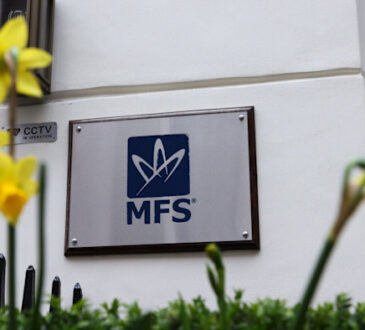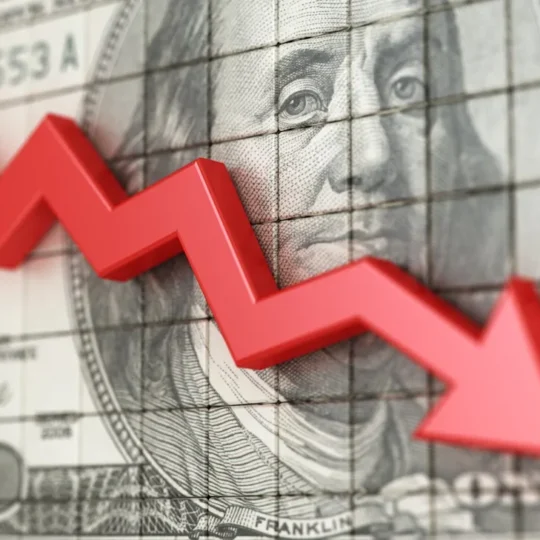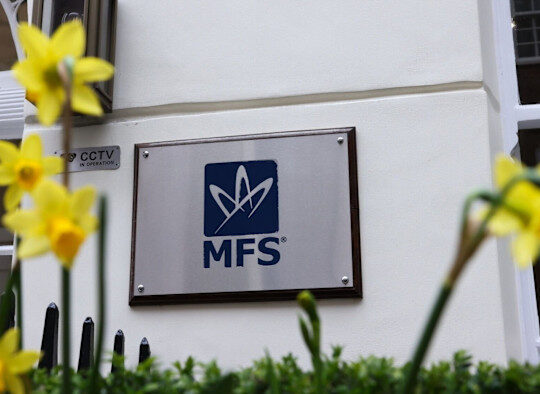As a global equity investor, there is much to consider from US President Trump’s new tariff regime, particularly in the context of UK equities.
The UK and Singapore received the lowest ‘reciprocal tariffs’ in President Trump’s ‘Liberation Day’ announcement.
A tariff rate of 10 per cent, less than that imposed on the Eurozone, is probably a win for the UK economy, but for the UK stock market the picture is a little more nuanced.
Compared to Europe, which faces a 20 per cent increased tariff, the changes will be easier for UK business to absorb.
However, countries facing much higher tariffs will look for other markets to sell the products they had originally planned to sell into the US.
This is sometimes known in economics as dumping.
Such products may end up being sold in the UK. This can make things cheap for UK consumers, but it can also undermine the profitability of domestic manufacturers, faced with an influx of competing imports.
If such dumping, particularly from China, were to become rampant in the UK and Europe, the net impact could be that tariffs, which in conventional economics would be regarded as inflationary – at least in the short-term – could be disinflationary.
Whether the battered UK consumer pockets the gains, or spends them on more items, will be the major determinant of whether the disinflation leads to growth or recession.
A feature of the FTSE is that it has become quite a defensive market in recent years, and some of those sectors, such as insurance companies and property companies, could do quite well, while those more tied to the economic cycle, such as banks and commodity stocks, may be more vulnerable.
Another measure mentioned by Trump is that he has levied a 25 per cent tariff on all imported cars.
There aren’t any listed car companies on the UK stock market. Of course, cars are manufactured in the UK, and the likelihood is that those which were previously sent for sale to the US will now be sold in Europe.
But this is an area where the “dumping” mentioned above, could be rife, as UK-made cars compete with those manufactured in Europe for the attention of the petrolheads’ euros.
The next largest UK exports to the US are pharmaceuticals. Here, a US citizen taking a drug made by, say, Glaxo, is unlikely to switch to a cheaper medication, so will just have to pay the higher price.
At the time of writing there remains little clarity on precisely how any tariff on pharmaceuticals will work, though the market has, initially at least, reacted positively, with Glaxo shares up more than 1 per cent in early London trading, while the FTSE 100 is down more than 1 per cent.
Wriggle room
After the Spring Statement, many commentators noted how little ‘wriggle room’ the UK chancellor has in her budget.
Despite the UK’s tariffs being amongst the lowest, the overall package and its effects on global growth and inflation will not make her situation any more comfortable.
The interesting calculation here is what will happen to government bond yields. The initial market reaction has been a flight to safety, which has pushed the price of US government bonds higher, and therefore the yields lower.
If gilts were to enjoy a persistence rally along the same lines, then it would be a relief for the chancellor as the interest bill on the government’s debt might be lower in future years.
The initial market reaction has been a flight to safety
However, any benefit could be wiped out if the effect of the tariffs is a prolonged, global economic slowdown, which results in lower GDP growth in the UK, and lower tax receipts.
As ever, the UK stock market is not the UK economy, and what may be (relatively) positive for one, might not be for the other.
After hours, the US market reaction was negative and reflected reduced expectations of growth. It was as if investors thought the tariffs would be watered down more than this.
The ‘Magnificent Seven’ technology stocks all fell – suggesting investors are selling equities and buying bonds. Apple shares fell 5 per cent after hours.
It makes most iPhones in China and those sent to China seem likely to attract a 35 per cent tariff. It seems hard to imagine this pleasing US consumers.
For all that, it won’t change our portfolios much. The Global fund owns Rolls Royce and Unilever – both not much affected – and is only 58 per cent weighted to US, compared with 67 per cent for the global benchmark.
The fund is also very underweight in the Mag Seven technology stocks which are very much in the crosshairs of the tariffs policy, with share price declines to match.
Defensive positioning does seem prudent right now across equities.
Simon Edelsten is a global equity fund manager at Goshawk







